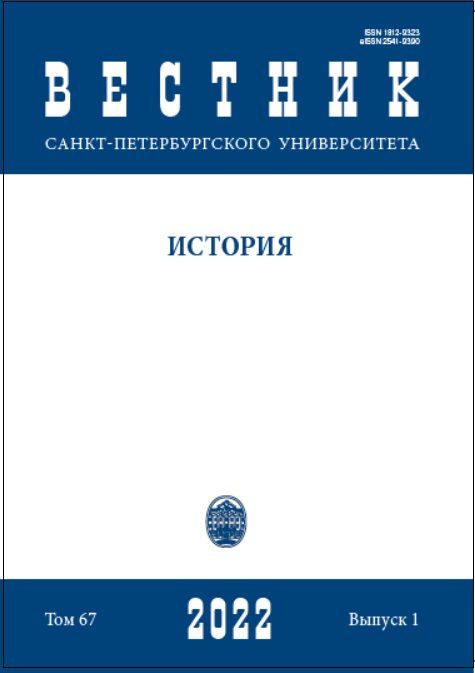The Roots and Significance of Assyrian Narrative for the Soviet historiography of Antiquity
DOI:
https://doi.org/10.21638/11701/spbu02.2022.115Abstract
The author used the reverse chronology method, consistently highlighting the special features of the narrative about Assyria from the beginning of the XXI century until the middle of the XX century, also focused on the fact that I.M. Dyakonoff, once the major Assyriologist, gradually had giving his pupils almost all of the sections of Assyrian history. On the basis of archival documents, was shown that the Assyrian I.M. Dyakonoff's narrative essentially arose even before the war, while he had written chapters for the multivolume “World History”. Assyrian narrative was formed under the influence of the “Cambridge History of Antiquity” and V.V. Struve's lectures: in the first case, this was evident in the presentation of a large volume of material, in the second case this was evident in the desire to search for non-obvious explanations of the essence of historical processes. Moreover, I.M. Diakonoff did not share V.V. Struve's explanations of Assyrian history, and he tried to present his view. The author reached the conclusion that the transition of I.M. Diakonoff, from studying Assyrian history to researching mainly Sumerian history, was inevitable and, to the least extent, could be caused by the desire to remove academician V.V. Struve from the positions of the classic of Soviet scholarship. Two main factors influenced this transition: first, the features of Soviet historical scholarship, which presupposed a search for in-depth explanations almost exclusively in the socio-economic field, and secondly, the specificity of Assyrian sources, which contained little information about socio-economic processes.
Keywords:
Soviet historiography, Assyriology, I.M. Diakonoff, “The World History”, archives data
Downloads
References
Downloads
Published
How to Cite
Issue
Section
License
Articles of "Vestnik of Saint Petersburg University. History" are open access distributed under the terms of the License Agreement with Saint Petersburg State University, which permits to the authors unrestricted distribution and self-archiving free of charge.





